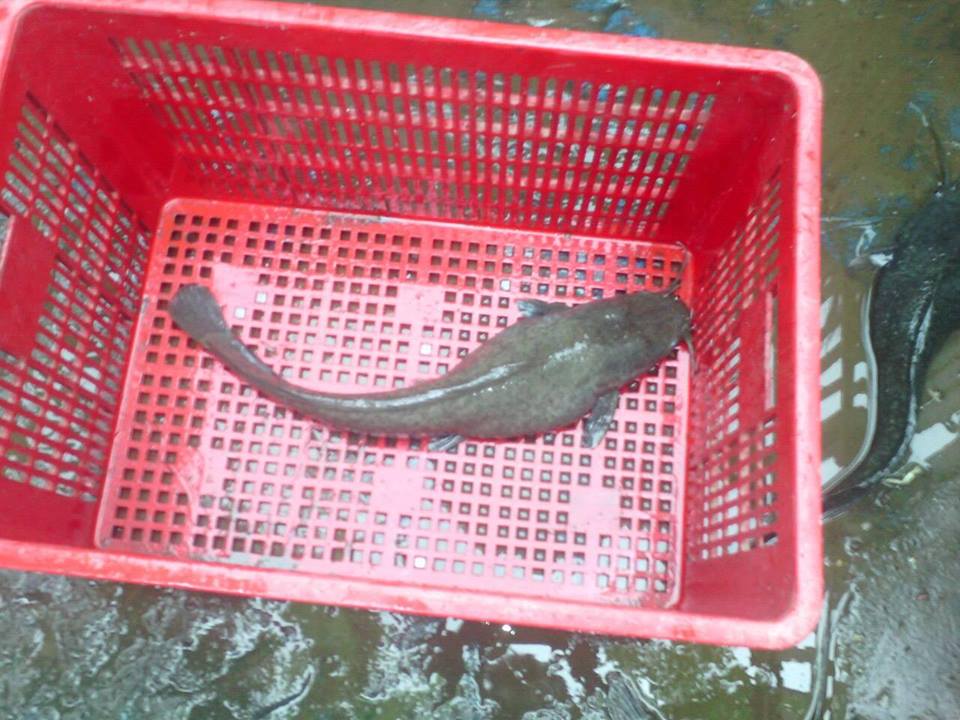The Cause of Mud Odor on Fish and How to Overcome it

Fishery cultivation activities are now more intensively conducted to meet market demand for fresh fish. But have you ever tasted the cuisine of fish cultivation that tasted the ground or smelled of mud?
The smell of mud must be very disturbing and detrimental, both for consumers and for cultivators. Meat fish that smells of mud causes meat feels less tasty and not favored by consumers. As a result, the selling value of the fish cultivated can be decreased and can lead to decreased income of fish farmers

Cause of Mud Odor
The smell of mud is found in some cultivated fish such as catfish, mas, patin, gurame, indigo, and milkfish. The smell of mud on fish meat or known as off-flavors is due to the condition of the waters used for cultivation is very fertile. Two chemical compounds that are the main cause of mud smell in fish are geosmin and 2-methylisoborneol (MIB). Both of these compounds are byproducts of metabolites produced by microorganisms mainly from the blue green algae (Cyanophyta) groups such as Oscillatoria sp., And Anabaena sp., Fungi (Actinomyces), and bacteria (Streptomyces tendae). These compounds in the waters are easily absorbed by the fish through the gills and into the flesh of the skin, stomach and intestines causing the smell of mud on the fish.
Geosmin compounds cause fish taste mud, while the MIB compound causes fish meat taste musty. The amount of geosmin and MIB absorbed by the fish is determined by the concentration, the duration of the fish being in the waters containing the compound, and the water temperature. The amount of geosmin and MIB produced by Cyanophyta increases in the dry season when the temperature in the water increases. Increased population of microorganisms producing geosmin and MIB caused by feeding and fertilizing the land by adding nutrients to the pond cultivation. The remaining feed is inedible and accumulates in the waters causing the waters to become fertile for the growth of microorganisms.
How to Overcome Mud Odor
Prevention to avoid the smell of mud on the fish meat of the cultivation needs to be done in order to get the cultivation production that the public interest. The easiest effort to do to remove the smell of mud on the fish meat of the cultivation is by doing a bend. Bending is done on clear water that flows for about 1 week. Fish that are packed in clear, flowing water containers are believed to remove the smell of mud in fish flesh. The water current that occurs during the bending causes the oxygen in the pond to increase and the metabolism remains to be carried out by the pool outflow.
The condition of the pool berulang that berarus cause many fish activities and perform muscle movement. This causes increased energy demand. In a fish that is stuck, energy needs come from the catabolism of fats and proteins from within the body. Increasing the need for automatic energy will increase the catabolism of fat and protein.
Bending is believed to reduce or even eliminate the smell of mud on the fish meat of the cultivated. This is because the geosmin and MIB compounds that cause the smell of mud on fish are bound in fatty tissue. In addition to bending for about 1 week, cultivated fish need to be empowered for 1-2 days before harvest to remove the mud smell. It aims to clean the entrails and digestive tract of fish.
Although the smell of mud on fish meat can be overcome, but it is better if the smell of the mud can be prevented and avoided. Prevention of mud smell on fish meat that may be done is by doing CBIB (Good Fish Cultivation), such as by maintaining the quality of water cultivation. Water cultivation that is kept clean and avoid blooming Cyanophyta can reduce the possibility of mud smell in fish meat.